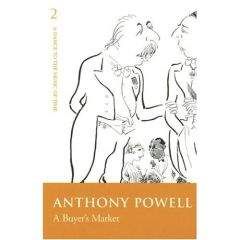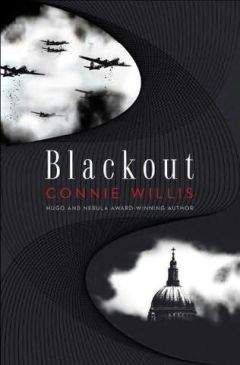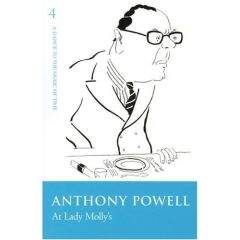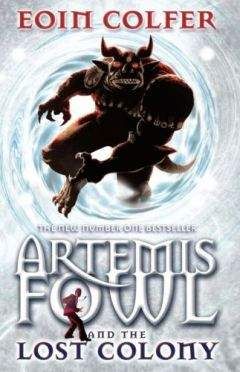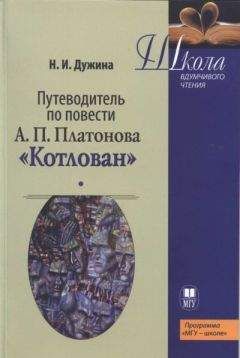W. Ainsworth - Rookwood
Full many coffins have I seen—have seen them deep or flat,
Fantastical in fashion—none fantastical as that."
And saying so, with heavy blow, the lid he shattered wide,
And, pale with fright, a ghastly sight that sexton grey espied;
A miserable sight it was, that loathsome corpse to see,
The last, last, dreary, darksome stage of fall'n humanity.
Though all was gone, save reeky bone, a green and grisly heap,
With scarce a trace of fleshly face, strange posture did it keep.
The hands were clench'd, the teeth were wrench'd, as if the wretch had risen,
E'en after death had ta'en his breath, to strive and burst his prison.
The neck was bent, the nails were rent, no limb or joint was straight
Together glued, with blood imbued, black and coagulate.
And, as the sexton stooped him down to lift the coffin plank,
His fingers were defiled all o'er with slimy substance dank.
"Ah, well-a-day!" that sexton grey unto himself did cry,
"Full well I see how Fate's decree foredoomed this wretch to die;
A living man, a breathing man, within the coffin thrust,
Alack! alack! the agony ere he returned to dust."
A vision drear did then appear unto that sexton's eyes;
Like that poor wight before him straight he in a coffin lies.
He lieth in a trance within that coffin close and fast;
Yet though he sleepeth now, he feels he shall awake at last.
The coffin then, by reverend men, is borne with footsteps slow,
Where tapers shine before the shrine, where breathes the requiem low;
And for the dead the prayer is said, for the soul that is not flown—
Then all is drown'd in hollow sound, the earth is o'er him thrown!
He draweth breath—he wakes from death to life more horrible;
To agony! such agony! no living tongue may tell.
Die! die he must, that wretched one! he struggles—strives in vain;
No more heaven's light, nor sunshine bright, shall he behold again.
"Gramercy, Lord!" the sexton roar'd, awakening suddenly,
"If this be dream, yet doth it seem most dreadful so to die.
Oh, cast my body in the sea! or hurl it on the shore!
But nail me not in coffin fast—no grave will I dig more."
It was not difficult to discover the effect produced by this song, in the lengthened faces of the greater part of the audience. Jack Palmer, however, laughed loud and long.
"Bravo, bravo!" cried he; "that suits my humour exactly. I can't abide the thoughts of a coffin. No deal box for me."
"A gibbet might, perhaps, serve your turn as well," muttered the sexton; adding aloud, "I am now entitled to call upon you;—a song!—a song!"
"Ay, a song, Mr. Palmer, a song," reiterated the hinds. "Yours will be the right kind of thing."
"Say no more," replied Jack. "I'll give you a chant composed upon Dick Turpin, the highwayman. It's no great shakes, to be sure, but it's the best I have." And, with a knowing wink at the sexton, he commenced in the true nasal whine the following strain:
ONE FOOT IN THE STIRRUP;
Or, Turpin's First Fling
"One foot in the stirrup, one hand in the rein,
And the noose be my portion, or freedom I'll gain!
Oh! give me a seat in my saddle once more,
And these bloodhounds shall find that the chase is not o'er!"
Thus muttered Dick Turpin, who found, while he slept,
That the Philistines old on his slumbers had crept;
Had entrapped him as puss on her form you'd ensnare,
And that gone were his snappers—and gone was his mare.
Hilloah!
How Dick had been captured is readily told,
The pursuit had been hot, though the night had been cold:
So at daybreak, exhausted, he sought brief repose
Mid the thick of a cornfield, away from his foes.
But in vain was his caution—in vain did his steed,
Ever watchful and wakeful in moments of need,
With lip and with hoof on her master's check press—
He slept on, nor heeded the warning of Bess.
Hilloah!
"Zounds! gem'men!" cried Turpin, "you've found me at fault,
And the highflying highwayman's come to a halt;
You have turned up a trump (for I weigh well my weight),
And the forty is yours, though the halter's my fate.
Well, come on't what will, you shall own when all's past,
That Dick Turpin, the Dauntless, was game to the last.
But, before we go further, I'll hold you a bet,
That one foot in my stirrup you won't let me set.
Hilloah!
"A hundred to one is the odds I will stand,
A hundred to one is the odds you command;
Here's a handful of goldfinches ready to fly!
May I venture a foot in my stirrup to try?"
As he carelessly spoke, Dick directed a glance
At his courser, and motioned her slyly askance:
You might tell by the singular toss of her head,
And the prick of her ears, that his meaning she read.
Hilloah!
With derision at first was Dick's wager received,
And his error at starting as yet unretrieved;
But when from his pocket the shiners he drew,
And offered to "make up the hundred to two,"
There were havers in plenty, and each whispered each,
The same thing, though varied in figure of speech,
"Let the fool act his folly—the stirrup of Bess!
He has put his foot in it already we guess!"
Hilloah!
Bess was brought to her master—Dick steadfastly gazed
At the eye of his mare, then his foot quick upraised:
His toe touched the stirrup, his hand grasped the rein—
He was safe on the back of his courser again!
As the clarion, fray-sounding and shrill, was the neigh
Of Black Bess, as she answered his cry hark-away!"
"Beset me, ye bloodhounds! in rear and in van;
My foot's in the stirrup, now catch me who can?"
Hilloah!
There was riding and gibing mid rabble and rout,
And the old woods re-echoed the Philistines' shout!
There was hurling and whirling o'er brake and o'er brier,
But the course of Dick Turpin was swift as heaven's fire.
Whipping, spurring, and straining, would nothing avail,
Dick laughed at their curses, and scoffed at their wail;
"My foot's in the stirrup!"—thus rang his last cry;
"Bess had answered my call; now her mettle we'll try!"
Hilloah!
Uproarious applause followed Jack's song, when the joviality of the mourners was interrupted by a summons to attend in the state room. Silence was at once completely restored; and, in the best order they could assume, they followed their leader, Peter Bradley. Jack Palmer was amongst the last to enter, and remained a not incurious spectator of a by no means common scene.
Preparations had been made to give due solemnity to the ceremonial. The leaden coffin was fastened down, and enclosed in an outer case of oak, upon the lid of which stood a richly-chased massive silver flagon, filled with burnt claret, called the grace-cup. All the lights were removed, save two lofty wax flambeaux, which were placed to the back, and threw a lurid glare upon the group immediately about the body, consisting of Ranulph Rookwood and some other friends of the deceased. Doctor Small stood in front of the bier; and, under the directions of Peter Bradley, the tenantry and household were formed into a wide half-moon across the chamber. There was a hush of expectation, as Doctor Small looked gravely round; and even Jack Palmer, who was as little likely as any man to yield to an impression of the kind, felt himself moved by the scene.
The very orthodox Small, as is well known to our readers, held everything savouring of the superstitions of the Scarlet Lady in supreme abomination; and, entertaining such opinions, it can scarcely be supposed that a funeral oration would find much favour in his eyes, accompanied, as it was, with the accessories of censer, candle, and cup; all evidently derived from that period when, under the three-crowned pontiff's sway, the shaven priest pronounced his benediction o'er the dead, and released the penitent's soul from purgatorial flames, while he heavily muleted the price of his redemption from the possessions of his successor.
Small resented the idea of treading in such steps, as an insult to himself and his cloth. Was he, the intolerant of Papistry, to tolerate this? Was he, who could not endure the odour of Catholicism, to have his nostrils thus polluted—his garments thus defiled by actual contact with it? It was not to be thought of: and he had formally signified his declination to Mr. Coates, when a little conversation with that gentleman, and certain weighty considerations therein held forth (the advowson of the church of Rookwood residing with the family), and represented by him, as well as the placing in juxtaposition of penalties to be incurred by refusal, that the scruples of Small gave way; and, with the best grace he could muster, very reluctantly promised compliance.
With these feelings, it will be readily conceived that the doctor was not in the best possible frame of mind for the delivery of his exhortation. His temper had been ruffled by a variety of petty annoyances, amongst the greatest of which was the condition to which the good cheer had reduced his clerk, Zachariah Trundletext, whose reeling eye, pendulous position, and open mouth, proclaimed him absolutely incapable of office. Zachariah was, in consequence, dismissed, and Small commenced his discourse unsupported. But as our recording it would not probably conduce to the amusement of our readers, whatever it might to their edification, we shall pass it over with very brief mention. Suffice it to say, that the oration was so thickly interstrewn with lengthy quotations from the fathers—Chrysostomus, Hieronimus, Ambrosius, Basilius, Bernardus, and the rest, with whose recondite Latinity, notwithstanding the clashing of their opinions with his own, the doctor was intimately acquainted, and which he moreover delighted to quote—that his auditors were absolutely mystified and perplexed, and probably not without design. Countenances of such amazement were turned towards him, that Small, who had a keen sense of the ludicrous, could scarcely forbear smiling as he proceeded; and if we could suspect so grave a personage of waggery, we should almost think that, by way of retaliation, he had palmed some abstruse monkish epicedium upon his astounded auditors.
The oration concluded, biscuits and confectionery were, according to old observance, handed to such of the tenantry as chose to partake of them. The serving of the grace-cup, which ought to have formed part of the duties of Zachariah, had he been capable of office, fell to the share of the sexton. The bowl was kissed, first by Ranulph, with lips that trembled with emotion, and afterwards by his surrounding friends; but no drop was tasted—a circumstance which did not escape Peter's observation. Proceeding to the tenantry, the first in order happened to be farmer Toft. Peter presented the cup, and as Toft was about to drain a deep draught of the wine, Peter whispered in his ear, "Take my advice for once, friend Toft, and don't let a bubble of the liquid pass your lips. For every drop of the wine you drain Sir Piers will have one sin the less, and you a load the heavier on your conscience. Didst never hear of sin swallowing? For what else was this custom adopted? Seest thou not the cup's brim hath not yet been moistened? Well, as you will—ha, ha!" And the sexton passed onwards.
His work being nearly completed, he looked around for Jack Palmer, whom he had remarked during the oration, but could nowhere discover him. Peter was about to place the flagon, now almost drained of its contents, upon its former resting-place, when Small took it from his hands.
"'In poculi fundo residuum non relinque,' admonisheth Pythagoras," said he, returning the cup drained of its contents to the sexton.
"My task here is ended," muttered Peter, "but not elsewhere. Foul weather or fine, thunder or rain, I must to the church."
Bequeathing his final instructions to certain of the household who were to form part of the procession, in case it set out, he opened the hall door, and, the pelting shower dashing heavily in his face, took his way up the avenue.
| Contents |
CHAPTER III
THE CHURCHYARD
LIGHTS streamed through the chancel window as the sexton entered the churchyard, darkly defining all the ramified tracery of the noble Gothic arch, and illumining the gorgeous dyes of its richly-stained glass, profusely decorated with the armorial bearings of the founder of the fane, and the many alliances of his descendants. The sheen of their blazonry gleamed bright in the darkness, as if to herald to his last home another of the line whose achievements it displayed. Glowing colourings, checkered like rainbow tints, were shed upon the broken leaves of the adjoining yew-trees, and upon the rounded grassy tombs.
Opening the gate, as he looked in that direction, Peter became aware of a dark figure, enveloped in a large black cloak, and covered with a slouched hat, standing at some distance, between the window and the tree, and so intervening as to receive the full influence of the stream of radiance which served to dilate its almost superhuman stature. The sexton stopped. The figure remained stationary. There was something singular both in the costume and situation of the person. Peter's curiosity was speedily aroused, and, familiar with every inch of the churchyard, he determined to take the nearest cut, and to ascertain to whom the mysterious cloak and hat belonged. Making his way over the undulating graves, and instinctively rounding the headstones that intercepted his path, he quickly drew near the object of his enquiry. From the moveless posture it maintained, the figure appeared to be unconscious of Peter's approach. To his eyes it seemed to expand as he advanced. He was now almost close upon it, when his progress was arrested by a violent grasp laid on his shoulder. He started, and uttered an exclamation of alarm. At this moment a vivid flash of lightning illumined the whole churchyard, and Peter then thought he beheld, at some distance from him, two other figures, bearing upon their shoulders a huge chest, or, it might be, a coffin. The garb of these figures, so far as it could be discerned through the drenching rain, was fantastical in the extreme. The foremost seemed to have a long white beard descending to his girdle. Little leisure, however, was allowed Peter for observation. The vision no sooner met his glance than it disappeared, and nothing was seen but the glimmering tombstones—nothing heard but the whistling wind and the heavily-descending shower. He rubbed his eyes. The muffled figure had vanished, and not a trace could be discovered of the mysterious coffin-bearers, if such they were.
